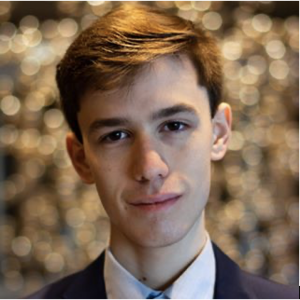This is part of series of posts by recipients of the 2020 Career Services Summer Funding Grant. We’ve asked funding recipients to reflect on their summer experiences and talk about the industries in which they spent their summer. You can read the entire series here.
This entry is by Elijah Fullerton, COL ’23
 During the summer of 2020, I had the amazing opportunity to work at the Think Tanks & Civil Societies Program as a project lead. Principally, my role was to lead the North American Data Collection team through the research process to the publication of our report and presentation of our work for over one hundred think tank executives. I directly managed six interns as a part of this team, all of whom worked collaboratively to create our professional quality knowledge products.
During the summer of 2020, I had the amazing opportunity to work at the Think Tanks & Civil Societies Program as a project lead. Principally, my role was to lead the North American Data Collection team through the research process to the publication of our report and presentation of our work for over one hundred think tank executives. I directly managed six interns as a part of this team, all of whom worked collaboratively to create our professional quality knowledge products.
I worked closely with Dr. McGann, a renowned think tank scholar and director of the program, who defines think tanks as “public-policy research analysis and engagement organizations that generate policy-oriented research, analysis and advice on domestic and international issues, thereby enabling policymakers and the public to make informed decisions about public policy.” Our research studied all 2,049 think tanks in North America, for which we gathered and analyzed a number of important metrics: the growth off the industry over its history, the geographic distribution of think tanks in the region, the budget and staffing analytics of the industry, the common institutional affiliations, and the major research trends.
Our work was important because it offered think tank leadership insight into their industry and recommendations for optimizing their institutions. One such insight rose from our finding that think tanks were heavily clustered in capital cities and major metropolitan areas, which resulted in a crowding out effect on institutions vying for limited policy maker demand; our recommendation for addressing this issue was that institutions expand or relocate to smaller provincial levels of government where they would find a similar appetite for their research and less competition. This was only one of many findings which we analyzed and presented.
Beyond my role as the project lead for the North America Data Collection Team, I also served as the project lead for the Asia Mapping Teams and as an editor for the Future of Think Tanks Book Projects. As the Asia Mapping project lead, I worked with four subordinate project leads, each with their own teams, to develop our database and perform analysis on the think tank industries of China, India, Korea, and Vietnam. While my role on the North America Data team consisted of project management and directly performing research, for the Asia Mapping Team I focused more on developing actionable strategies and consulting with my team mates on how to most effectively manage their groups. As an editor for the Future of Think Tanks book projects, I reviewed and copy-edited submissions from over one hundred think tank executives across the globe; all of whom offered their insight into the future challenges and opportunities facing the industry.
My time at the Think Tanks and Civil Societies program has been the best work experience I have ever had up to this point. My work was fulfilling, impactful, and allowed me to grow as a scholar, leader, and professional. Moving forward, I hope to leverage my experience to generate valuable insight for my future stakeholders.




